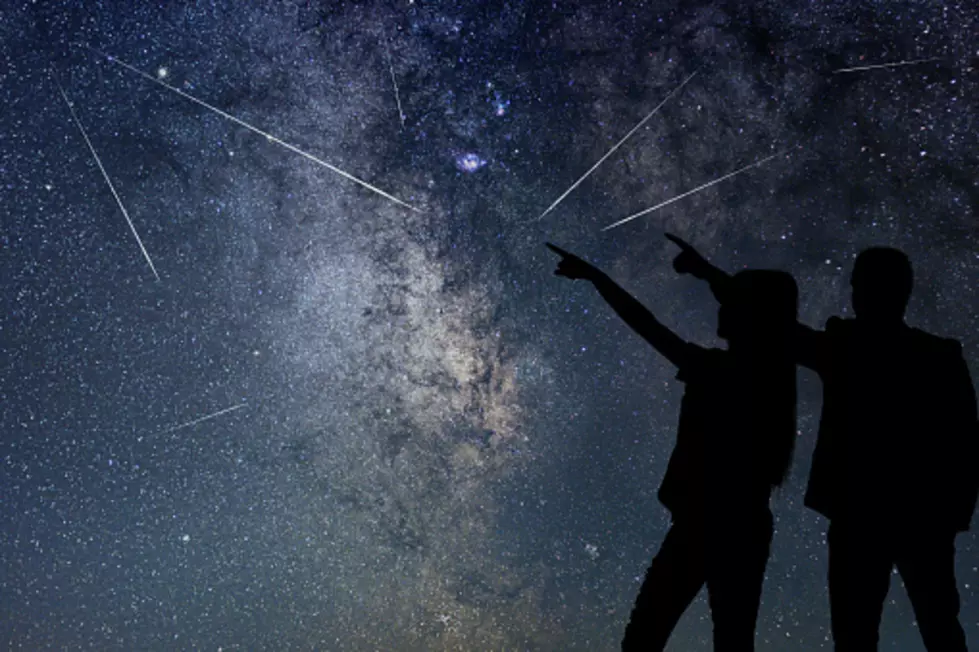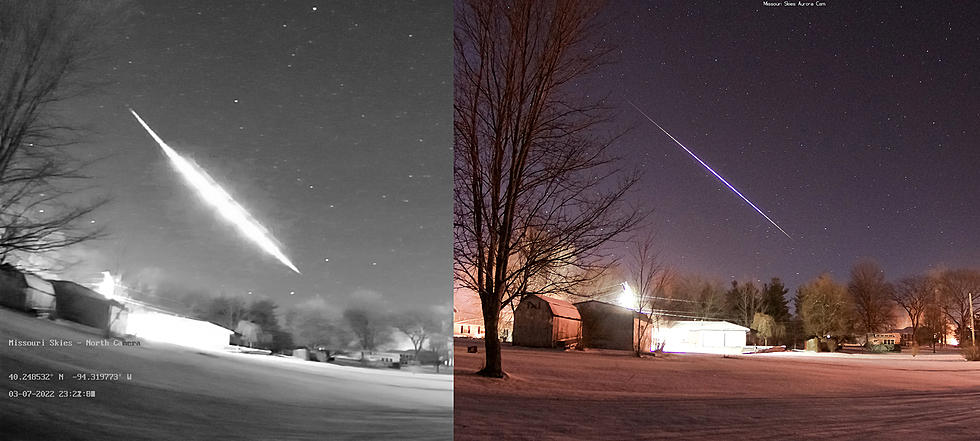
One Of The Most Spectacular Meteor Showers Happening This Weekend
Time to lie back and look straight upward at the night sky because this weekend falls one of the most spectacular meteor showers.
We know it's the middle of November, we know it is cold, and we know it's been snowing HOWEVER if you are willing to bundle up and go outside in the middle of the night, you just might catch a beautiful night sky show!
When is the meteor shower?
NASA says to look straight overhead for Leonid meteors after midnight this week. The 2022 Leonid meteor shower peaks over the night of November 17-18. You may also see increased numbers of meteors a few days before and after the peak.
"The annual Leonid meteor shower will be gaining in intensity this week, peaking after midnight in the wee hours of Friday, November 18. While this meteor shower will be active all month, at its peak it could deliver approximately 15 to 20 meteors per hour, according to NASA."
How visible will the meteor shower be?
The best time to view a meteor shower is when the sky is completely black, however, the moon plays a big part in how dark the sky will be each night.
This year during the Leonids meteor shower the moon will be about 35% full, which could obscure fainter meteors, says NASA.
Don't let this moon news bother you though. Leonid meteors are known for being colorful, fast, and bright, NASA says, with trails that can linger for several seconds as they streak across the sky. This means you will still be able to see some meteors despite the brightness of the moon.
How rare is the Leonid Meteor Shower?
A Leonid Meteor Storm comes roughly every 33 years, the last one being in 2002. It can bring more than 1,000 meteors per hour.
Planetary.org says the annual Leonid meteor shower is caused by the Earth passing through debris from Comet 55P/Tempel-Tuttle. (Whatever that means.)
How to watch the meteor shower?
"To watch, go to the darkest place you can, let your eyes adjust, and spend some time looking at the sky. With patience, you occasionally will see a streak of light that is a meteor," says Planetary.org.
Read More Here: MLIVE.com and here: Planetary.org




